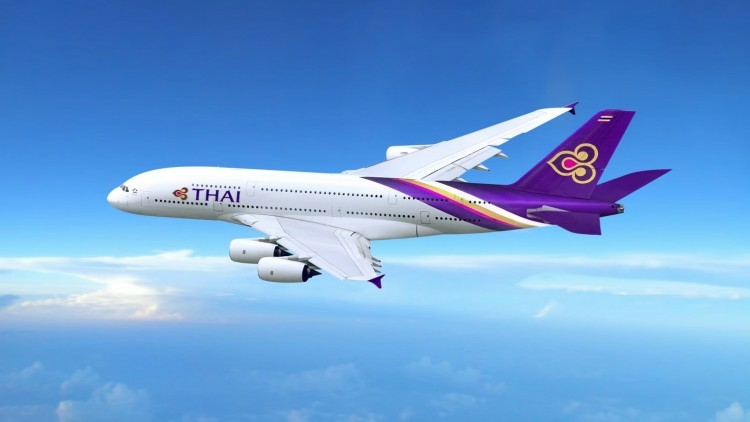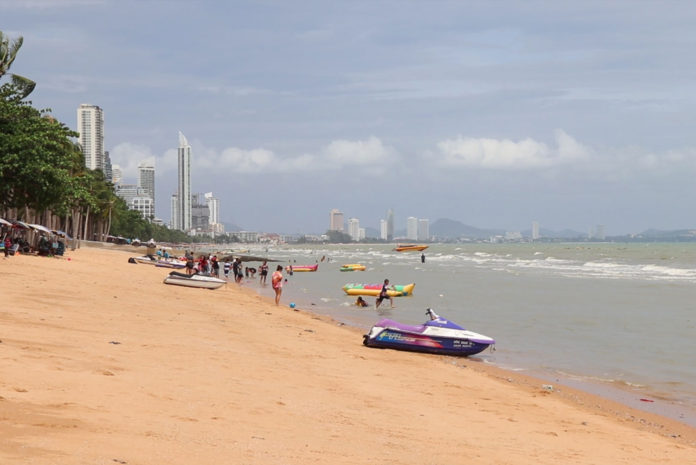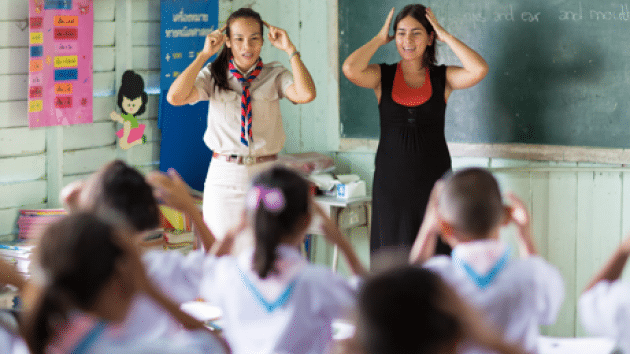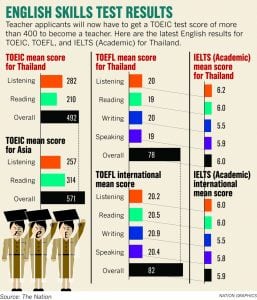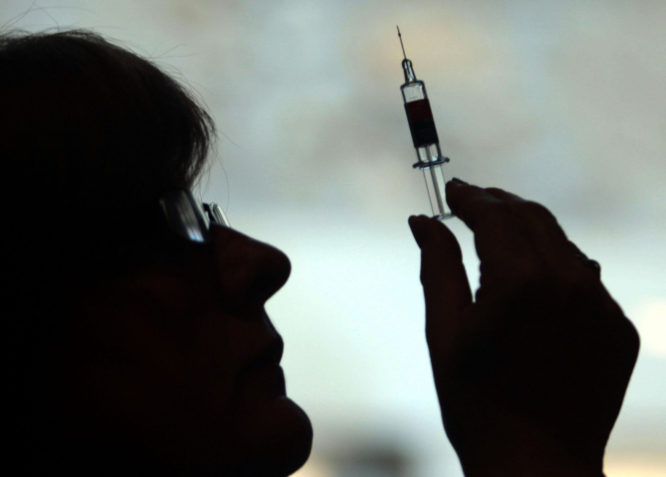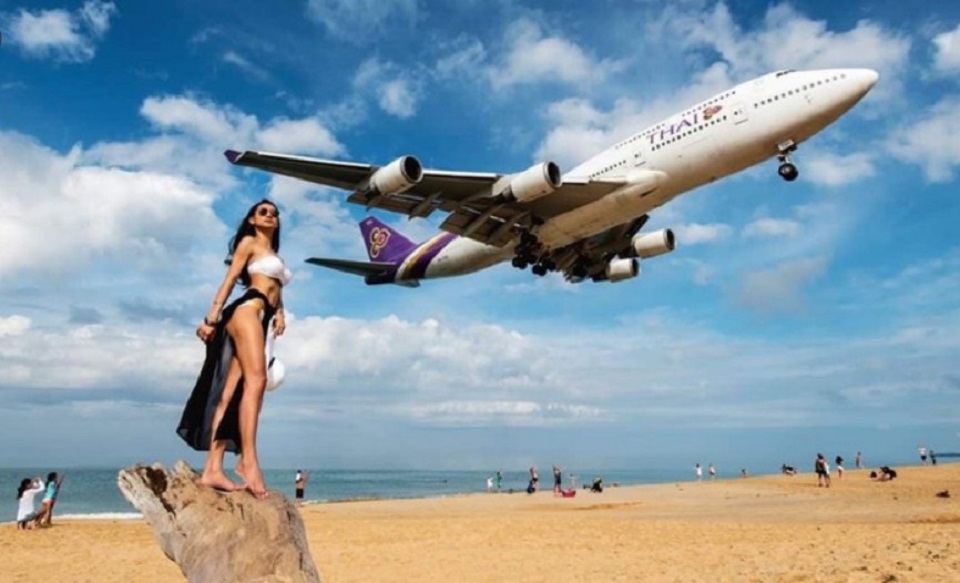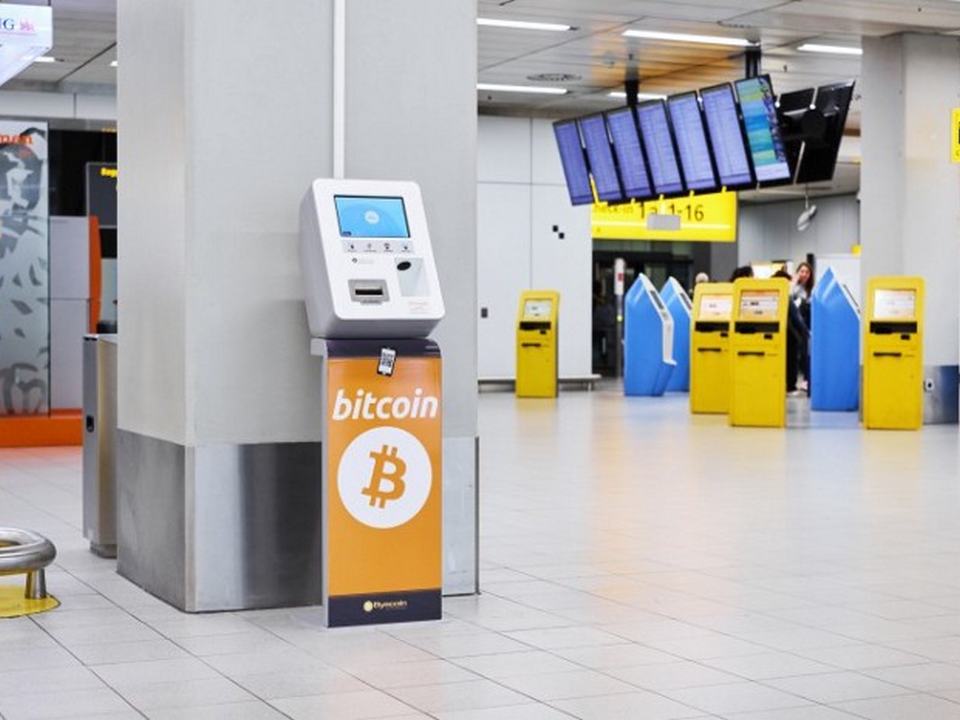PHUKET: Phuket is the perfect testbed for allowing vaccinated tourists who undergo rapid testing on arrival to enter the country on holidays, Bill Heinecke, founder and chairman of the Minor Group, told a seminar held at Laguna Phuket yesterday (Feb 19).
Allowing the return of vaccinated tourists who undergo rapid testing is the only way to safely reopen the country to tourism, Mr Heinecke said, noting that quarantine was "killing" any prospects of restarting tourism and helping to reboot the economy.
Mr Heinecke said he was "very honoured" to be at the 'Phuket Roundtable' event, chaired by Phuket Tourist Association President Bhummikitti Ruktaengam, and joined by a host of leading representatives from Phuket's tourism and other industries, as part of the united push to reopen Phuket to international tourists by Oct 1, under the campaign #PhuketfirstOctober.
"I think it is very important right now that you, through seminars like this, try to re-open up tourism safely," Mr Heinceke noted.
"I think we are all aware now of the success of some of the initial vaccines and it's quite encouraging. I hope we can build confidence to open to people when they are vaccinated and when they arrive and be tested negatively – so that means they cant be asymptomatic or carrying the virus when they land.
"If we can do that we can dispense with quarantine," he said.
"Quarantine is the thing that is killing tourism. There is no way we can possibly reopen while we have quarantine," Mr Heinecke said plainly.
"Even today the government is trying to highlight the fact that everyone is trying to make quarantine easy. Quarantine is not easy. It is difficult," he added.
By example, Mr Heincke pointed out that Thailand was "the only country in the world with no drinking in the room while in ALQ or ASQ quarantine".
"That is understandable if you are in a hospital or state quarantine, but not if your paying for five-star or six-star accommodation," he added.
Mr Heincke also highlighted the slowness the Thai government has proceeded in securing vaccines for the country, and the lack of a clear outline – and timeline – for vaccinating the population.
"It behooves the government to encourage the private sector to move forward and allow the private sector to source vaccines that have been approved. We should allow people to import vaccines that have been approved without interference from the government," he said.
"We hope that we can do this – through meetings like this – and get Phuket thriving again. Phuket is the perfect example because Phuket is an island. It would be relatively simple to enforce, and when everyone is being tracked as is already happening.
Mr Heinecke highlighted the success now being enjoyed by the Makdives in reopening tourism.
"From what we know from the Maldives, I would expect that Phuket in its first year [after reopening] could have as many as 10 million people coming," Mr Heinecke explained.
"The Maldives is already back to pre-COVID levels even though it is a pretty small island and has a limited air traffic," he said.
"Phuket airport can handle direct flights from Australia, London and all through the Middle East, so we could truly make an impact," he added.
"The latest I have heard is that the government is looking at 3-5mn tourists only in the first year [after allowing tourists to return], which means we would go through another year of what we have just had this past year – and I don't think many of us could survive that sort of outlook," he said.
"So I sincerely hope we can together get the government to move quicker, transparently and try to get help from as many people as they can – especially the private sector, which is generally much more efficient than the government as we lack the bureaucracy that the government is so famous for.
"Thank you very much. I hope we can support you. We appreciate the importance that Phuket that has is turning tourism around for Thailand," Mr Heinecke concluded.
HARD FIGURES
Getting the proceedings underway earlier yesterday afternoon, Dr Chayanon Pucharoen, Associate Dean for Research and Graduate Studies at the Prince of Songkla University (PSU) Phuket Faculty of Hospitality and Tourism, presented figures pointing out what Phuket would need in terms of domestic tourist arrivals to have any hope of keeping Phuket's tourism industry alive until foreign tourists were allowed to return.
The short verdict was that time was running out. Phuket needs to have even more domestic tourists than after the "first wave" of COVID infections last year in order to survuve. Those numbers were not arriving today.
Dr Chayanon has already publicly explained that an "inception report" by his faculty had shown that any further impact on the island's economy would see the per capita revenue generated by tourism, including the multiplier effect through the island's economy, fall below the provincial per capita poverty line.
Before making his presentation, Dr Chayanon explained to The Phuket News that many people were of the understanding that the projections were still yet to happen.
The projections were provided at the time of the inception report, explained yesterday.
The "pain point" Phuket was projected to experience is happening now.
Dr Chayanon noted that if Phuket were reopened to receive to tourism by Oct 1 could see a very quick, if not full, recovery, restoring some 88,000 jobs on the island.
Any delay after Oct 1 could see Phuket recover much less in the coming year, possibly only as much as 50%, he said.
INTERCEPT POINT
Dr Chayanon also pointed out that the "first wave" last revealed a pattern of infections. "Any experience that maintains a pattern can be interrupted," he said.
As with any community, the first wave of infections in Phuket was introduced by an outside member, but the ensuing explosion of infections came in the "secondary infection" phase, where local residents infected each other, mostly by living in the same household.
Living in the same house as an infected person increased a person's probability of becoming infected by as much as 25%, he said.
That put clear pressure on stopping infections in the first instance, whereby even if a frontline worker is infected, the goal is to prevent that infected person from infecting others, namely family members living in the same house.
Bill Barnett, Managing Director of hospitality consultancy C9 Hotelworks, pointed out that rapid-testing was critical in identifying infected tourism staffers, to ensure the spread carried no further.
Dr Chayanon agreed, also pointing out that rapid testing on foreign tourist arrivals would also stop infected people "at the gate".
Ravi Chandran, Executive Vice President Group Business Performance at Banyan Tree Holdings, and Anthony Lark, President of the Phuket Hotels Association, both also strongly supported rapid testing as a key tool in identifying people infected with COVID preventing the spread the SARS-CoV-2 virus.
"Rapid testing is vital, especially at the bridge [onto Phuket]. It plays a huge role in this," Mr Lark said.
"I don't think this will work without rapid testing," he noted.
Mr Chandran pointed out, "We have a long way to go and still have a lot of questions to be answered, but this forum has been good… We can all see that vaccinations are a must, but rapid testing is a key part of this to make sure that any infections do not go past hotel staff.
"Also, it is vital that family members of hotel staff be vaccinated," he said.
However, Mr Chandran said that he had also been informed that "good news" from Bangkok was expected imminently, as early as Monday (Feb 22).
ONE OPTION
Representatives from AT Medizerva, already experienced in coordinating the deployment of medical resources and equipment, explained that a range of vaccines were already available through their company.
The Moderna vaccine was presented as the preferred vaccine, with its 95% efficacy rate, high efficacy against South African strain, 30-day shelf life and ability to be safely transported at only 2-8°C, and the vaccine already being already accepted by 40 countries.
However, a bulk order of 1mn doses was a requirement for an order to be placed, but delivery could be made within eight to 12 weeks if they received the go-ahead.
In order to be able to independently supply the vaccine under the current rules laid out by Bangkok, AT Medizerva would need to have the PSU place the order, as medical schools are included in the definition provided so far as the medical organisations that are allowed to order vaccines directly, the representatives explained.
The representatives noted that current estimates expected 220mn people to be vaccinated worldwide by April, and 800mn to 1bn people vaccinated by end of the year.
Under this option, the vaccine was expected to cost B2,500 - 2,800 net per dose, bringing the total cost of bringing Phuket to herd immunity to about B1.68bn.
ROUNDUP
In rounding out the "roundatable" conference, Sarayuth Mallam, President of Phuket Tourism Industry Council, praised Mr Heinecke's efforts to bring the plight of the tourism industry, and the options to reopening tourism – to the prime minister's attention.
He also highlighted the critical flaw in the central government's focus on trying to treat every province in the country with the same importance in dealing with COVID and impact on the economy, pointing out that Phuket could not be afforded the same policy approach as rural provinces such as Surin and Sisaket.
Phuket Chamber of Commerce President Thanusak Phungdet and leading Phuket business figure Sombat Atiset, owner of the Katathani Resort, both highlighted the failings of the government to support tourism business operators struggling to create any form of income during the current crisis.
Mr Sombat specifically pointed out that despite all the public relations campaigns and positive spin by the government in promoting the assistance programs launched to help struggling business owners, very few operators are being approved the loans being made available due to the terms applied.
The so-called assistance programs to help struggling business owners simply was not having any effect in the real world, he noted.
Business owners received much more support under the 'Thai Khem Kaeng' fiscal stimulus policy rolled out during the 2009 financial crisis, Mr Sombat said plainly.







